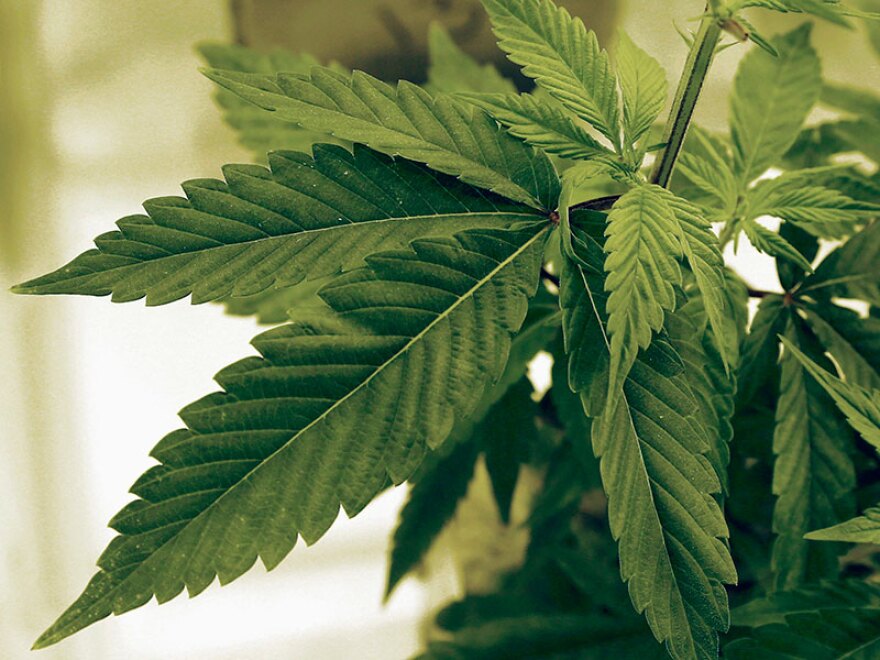Ohio cities and law enforcement agencies continue to raise concerns that they can’t easily prosecute people for small amounts of marijuana because of the state’s new law allowing hemp and CBD oil. Some say the problem is there’s no good way to test the differences between marijuana and hemp.
The law recently signed by Gov. Mike DeWine stipulates marijuana must be tested to determine its level of THC – the chemical that causes a high. If it is below 0.3%, it is legally considered hemp, a product that is allowed under the new law.
If the THC is above that level, it’s marijuana, and laws against possession of it could still be enforced.
But some cities, such as Columbus, say testing for THC is too expensive for misdemeanor possession offenses. Drug dogs are often not able to distinguish the difference between pot and hemp, either.
Ohio House Speaker Larry Householder isn’t buying those arguments.
“I think that was a political situation by the city of Columbus because they don’t want to abide by the marijuana laws we have in the state of Ohio. I don’t think there’s any question about that," Householder says.
Democratic Columbus City Attorney Zach Klein says the city’s decision to temporarily stop prosecuting people for small amounts of personal marijuana, a misdemeanor offense, is not political. He says it’s practical and applies to all parts of Ohio.
“Clearly, in the short term, without having the appropriate testing, no one, whether it is the city of Columbus or all other 88 counties, can prosecute a marijuana case as a result of this bill," Klein says.
Columbus City Council also recently passed an ordinance that cuts penalties and eliminates jail time for possession of less than 250 grams of marijuana.
“The fact of the matter is a prosecutor can’t take a case to court without having a lab test that shows that it has a prohibitive level of THC," says Ohio Attorney General Dave Yost.
That being said, Yost is quick to point out the hemp law hasn’t rendered personal marijuana use legal.
“Since the 1980s, so this is a long time, up to 100 grams of marijuana is legal basically in Ohio. It’s up to $150 fine. You cannot get arrested for it under Ohio law,” Yost says. “Now you can get a $150 fine and there are collateral sanctions, so I’m not encouraging people do it, but the notion that we have people in jail because they had one marijuana cigarette in their pocket, they had a joint in their pocket when they got stopped for a traffic citation, just isn’t true.”
Yost says cities can use private testing labs to test marijuana if they want. He also says there are new machines installed at Bureau of Criminal Investigation facilities in Richfield and London that can currently test the level of marijuana, with another planned at Bowling Green. Those will be widely available by the first of the year.
Yost says cities that want to prosecute for marijuana-related crimes can use that equipment, but they need to pay for it if the crime isn’t serious enough to warrant jail time. Cities will have the option of purchasing their own equipment, as well.
But Klein says the cost of prosecution now and in the future is the key issue here.
“You know, when the city of Columbus City Council passes a law that essentially makes it a $10 fine for possessing marijuana and a new piece of equipment costs $250,000, we have to have the practical conversation of a cost benefit analysis of should we spend $250,000 for a $10 fine?" Klein asks.
Klein says it’s important to note drug traffickers or those driving under the influence of drugs will be prosecuted now and in the future.
Yost says state testing labs will also give higher priority to testing marijuana for those more serious crimes. The state is also making available $50,000 in grant money to help police agencies with the cost of testing and prosecuting marijuana crimes.
Householder says the notion that this conversation is happening now as the new hemp law is implemented is aggravating lawmakers like him who supported it.
“It’s extremely frustrating,” Householder says. “I just can’t believe it happened. It is just the most bizarre thing I’ve seen in my time in the legislature, where you can go through a process of 14 weeks that a bill is out there and everybody knew this bill was moving and we were looking for controversial issues to help us make decisions and we found none.”
Klein says Columbus didn’t testify against the bill because farmers actually need the opportunity to grow and market hemp, and were at a competitive disadvantage without it.
Farmers who want to grow hemp will be required to obtain a license from the state. Those licenses are not available right now, but the goal is to have farmers licensed and able to plant the crop by the spring of 2020.





